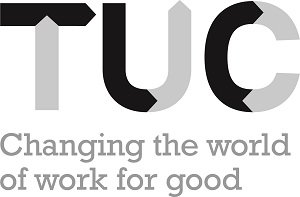What Does Tory mean?
The Cambridge Dictionary defines a “Tory” as a member of the British Conservative Party or its Canadian counterpart.
It also points out that the term is used to describe loyalists to the British Crown in the United States during the American Revolution.
Where does the term Tory come from?
The etymology of the term is a complex one.
It is thought to be an anglicisation of an Irish term, though it is unclear which.
The Irish word toruidhe or toruighe, meaning “to pursue” or “to hunt” is one theory.
Indeed during the 16th and 17th century, the term “Tory” emerged as a descriptor of dispossessed Irish people who were forced to live in the woods and survive by hunting and stealing from English settlers.
However the suppression of this way of life meant this immediate connotation with the term waned, and it soon evolved into a more general Irish term for “outlaw papists”, a “robber[s] noted for outrages and cruelty” or a general criminal.
The further evolution of the term to denote political Conservatism has led some to suggest it could have roots in the Gaelic word toir, meaning to grant and bestow; or toirbhearl, describing efficiency, bounty or munificence.
Throughout the mid-1600s the term was used for dispossessed Irish Catholics and the royalist-allied rebels against Oliver Cromwell’s Irish campaign.
Titus Oates, the infamous fabricator of the “Popish plot” planning the regicide of Charles II first brought to term into widespread English use, in reference to plotters against himself and his backers.
In the 1680s the supporters of Charles II heir and brother James of York were referred to as Tories-their opponents being nicknamed “Whigs”.
The Whigs opposed a James II, a Catholic, inheriting the throne. A parliamentary faction led by their faction proposed a bill aiming to exclude James from the hereditary line.
While the bill was defeated, James was deposed three years after his accession to the throne in 1688.
Although they were not an official political party until 1834, the Tories remained a recognisable faction through the eighteenth century. They were defined by their staunch belief in monarchism as a check on the influence of Parliament.
The group were also known for their Anglicanism, despite their previous backing of a Roman Catholic heir. They were also known for their aversion to radical reform.
In the 1830s the party leader Sir Robert Peel began using the term “Conservative” to describe the “Tory” grouping in Parliament.
Is Tory an insult?
The term “Tory” has been a byword for supporters and members of the Conservative Party since its foundation.
These days a Conservative MP is often still referred to as a Tory MP, rebellious Conservatives are labelled Tory rebels, the Conservative leader is called the tory leader, the Conservative party is regulalry referred to as the Tory party, and Conservative voters as Tory voters.
Shifting from its colloquial usage at the twilight of the seventeenth century, it soon became a formal term for the political grouping, as did its “Whig” counterpart.
Political opponents commonly use the term to qualify policies they seek to criticise – e.g. Tory spending cuts, Tory ideology, Tory austerity, Tory “scum”, Tory in-fighting.
A range of news outlets with impartiality requirements, such as the BBC, use the term interchangeably with “Conservative”- especially as the shorter term makes for snappier headlines.
Peter Bone MP told the BBC in 2015: “These days it doesn’t matter which you use. People have forgotten the history…Tory is quite handy if you’re tweeting.”
However erstwhile Labour minister David Blunkett said he used the term “Tory” because of its historic connotations, explaining: “I use “Tory” and “Tories” to describe our opponents because to me, those terms place them somewhere backward-looking, negative and reactionary.”
A ‘Red Tory’ is sometimes used as a term for Conservatives who hold more left wing views than his or her colleagues.
Quotes
“Triumphant Tories, and desponding Whigs, Forget their feuds, and join to save their wigs.” – Jonathan Swift
“The parties of Whig and Tory are those of nature. They exist in all countries, whether called by these names or by those of Aristocrats and Democrats, Cote Droite and Cote Gauche, Ultras and Radicals, Serviles and Liberals. The sickly, weakly, timid man fears the people and is a Tory by nature. The healthy, strong and bold cherishes them, and is formed a Whig by nature.” – Thomas Jefferson
“Before people break the law, they need strong families – adult authority figures and the love of the family. When they step over the line, I’m a Tory. I believe in tough responses, in the law coming down on people like a ton of bricks.” – David Cameron
“I am neither a Whig nor Tory. My politics are described in one word and that word is England.” – Benjamin Disraeli


